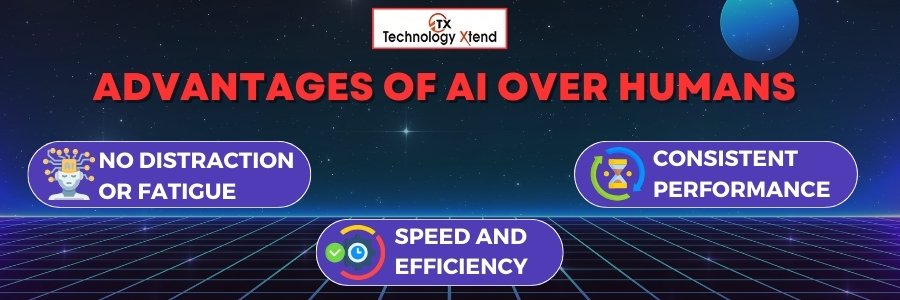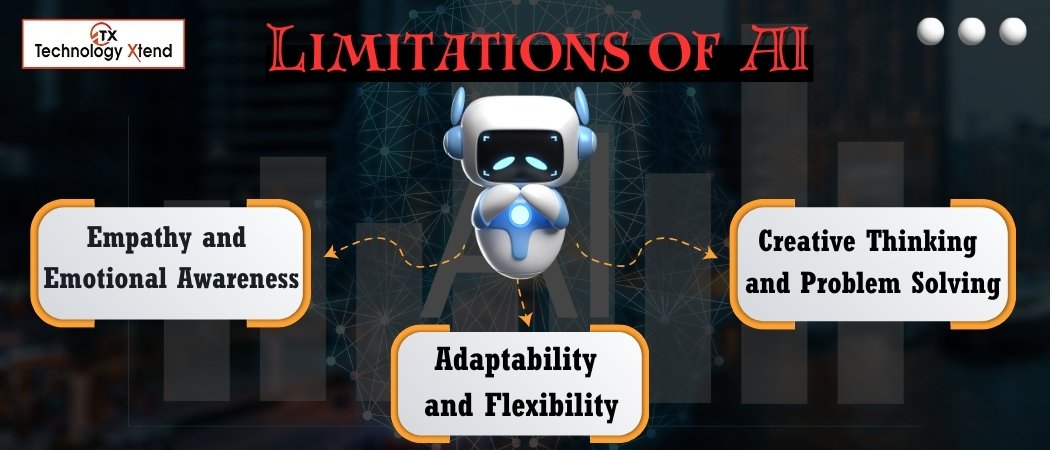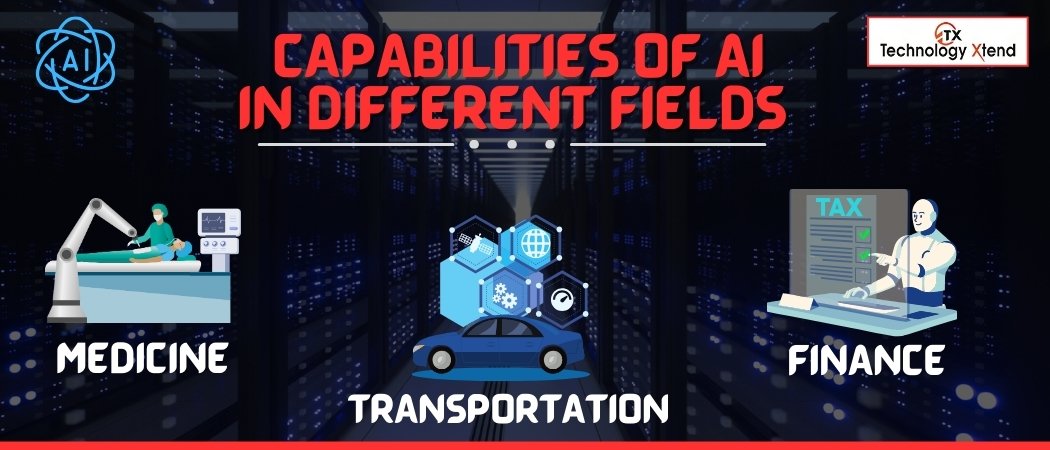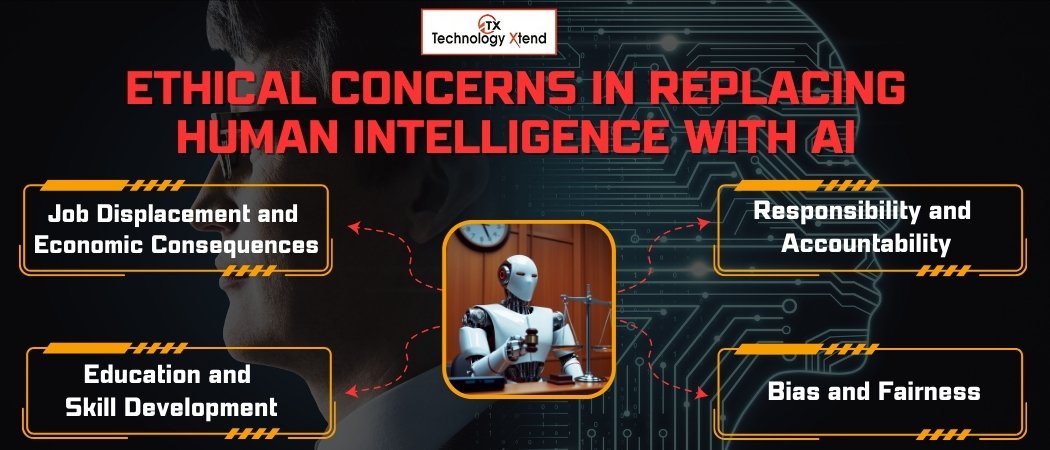
Technology XtendCan Artificial Intelligence Replace Human Intelligence
Table of Contents
- ☛ Advantages of AI Over Humans
- ☛ Limitations of AI Compared to Humans
- ☛ Examples of Current AI Capabilities in Different Fields
- ☛ The Ethics and Implications of Replacing Human Intelligence with AI
- ☛ Conclusion
Artificial Intelligence (AI) refers to machines that can learn and perform tasks that typically require human intelligence. AI has come a long way since its inception and has made significant contributions to fields such as medicine, transportation, and finance. But, can AI replace human intelligence altogether? This question has garnered much attention and debate over the years. In this blog post, we will explore the advantages and limitations of AI compared to humans, current AI capabilities in different fields, the ethics and implications of replacing human intelligence with AI and predict the future relationship between AI and human intelligence.
Advantages of AI Over Humans
AI has several advantages over humans, including speed and efficiency, consistent performance, and no distraction or fatigue. Machines can process vast amounts of data in a fraction of the time it would take a human to do the same task. Additionally, machines can perform the same task repetitively with the same level of accuracy, something that human performance may vary based on factors such as emotions and fatigue.

Speed and Efficiency
One of the most significant advantages of AI is speed and efficiency. AI-powered machines can automate tasks that would take humans a considerable amount of time to complete manually. For example, in the medical field, MRI machines can conduct scans and send data to AI algorithms that can diagnose medical conditions accurately and quickly.
Consistent Performance
AI machines can perform the same task repeatedly and consistently without the performance decreasing over time. In contrast, human performance may vary based on factors such as emotions, fatigue, and other environmental factors that may affect their cognitive abilities.
No Distraction or Fatigue
AI machines do not experience fatigue, are less prone to errors due to distraction, and can work 24/7 without any break. In contrast, human attention mechanisms have limitations and can become distracted, decreasing their performance.
Limitations of AI Compared to Humans
Although AI has several advantages over humans, it also has significant limitations in areas where humans excel. AI has limitations in areas such as empathy and emotional awareness, creative thinking and problem solving, and adaptability and flexibility.

Empathy and Emotional Awareness
Humans have an innate ability to identify and recognize other people's emotions, a critical component of social interaction. AI lacks the ability to experience and recognize emotions and thus cannot replicate this aspect of human intelligence.
Creative Thinking and Problem Solving
AI works on the basis of previously identified patterns and cannot perform tasks that require original and creative thinking. Humans have the ability to solve complex problems by employing creativity and innovative thinking, which is not a trait present in AI.
Adaptability and Flexibility
Humans are flexible and capable of adapting to new situations and environments. AI systems are programmed to perform specific tasks and cannot adapt to new situations without being reprogrammed.
Also Read :- Artificial Intelligence: A Beginner’s Guide to Understanding AI
Examples of Current AI Capabilities in Different Fields
Despite the limitations of AI, machines are becoming increasingly adept at performing tasks traditionally reserved for human intelligence. Here are examples of current AI capabilities in different fields:

Medicine
AI is used in the medical field to diagnose diseases and develop personalized treatment plans. It is also used in robotic surgeries and drug discovery. Here are some key AI capabilities in medicine:
☛ Medical Imaging Analysis: AI can analyze medical images, such as X-rays, CT scans, and MRIs, to assist in the detection and diagnosis of diseases. Deep learning algorithms can identify patterns, lesions, and anomalies, aiding radiologists in providing more accurate and efficient interpretations.
☛ Diagnostics and Decision Support: AI algorithms can help physicians and healthcare professionals in diagnosing diseases by analyzing patient data, symptoms, and medical histories. They can provide decision support by suggesting potential diagnoses, treatment options, and predicting patient outcomes based on large datasets and evidence-based guidelines.
☛ Drug Discovery and Development: AI is being used to accelerate the drug discovery process by analyzing vast amounts of biological and chemical data. Machine learning models can predict the effectiveness and safety of potential drug candidates, reducing the time and cost required for development.
☛ Remote Monitoring and Telemedicine: AI enables remote patient monitoring, allowing healthcare providers to collect and analyze real-time data from wearable devices, sensors, and mobile apps. AI algorithms can detect trends, flag abnormalities, and provide continuous monitoring, enhancing the management of chronic conditions and enabling telemedicine consultations.
Transportation
AI is used to optimize traffic flow and prevent accidents. Self-driving cars, trucks, and drones are becoming a reality due to AI advancements. Here are some key AI capabilities in transportation:
☛ Autonomous Vehicles: AI powers self-driving cars, trucks, and other autonomous vehicles. AI algorithms analyze sensor data from cameras, radar, lidar, and other devices to perceive the surrounding environment, make real-time decisions, and navigate safely without human intervention.
☛ Intelligent Traffic Management: AI can optimize traffic flow and reduce congestion by analyzing data from various sources, such as traffic cameras, sensors, and GPS devices. AI algorithms can predict traffic patterns, dynamically adjust signal timings, and provide real-time traffic information to drivers, enabling more efficient transportation systems.
☛ Smart Infrastructure: AI can be used to manage and control smart transportation infrastructure, such as intelligent traffic lights, smart parking systems, and electric vehicle charging stations. AI algorithms can analyze data from sensors and cameras to optimize infrastructure utilization, reduce energy consumption, and enhance overall efficiency.
☛ Route Planning and Navigation: AI-powered route planning systems can analyze real-time traffic data, weather conditions, and historical patterns to suggest the most efficient routes for drivers, considering factors like travel time, fuel consumption, and congestion levels.
Finance
AI is used in finance to predict market trends, detect fraud, and automate financial tasks. Here are some key AI capabilities in finance:
☛ Fraud Detection: AI algorithms can analyze large volumes of financial transactions in real-time to identify patterns and anomalies indicative of fraudulent activities. By continuously learning from new data, AI systems can improve fraud detection accuracy and reduce false positives.
☛ Risk Assessment and Management: AI can assess creditworthiness, predict default probabilities, and evaluate risk in investment portfolios. Machine learning algorithms can analyze historical data, market trends, and other relevant variables to generate risk models, optimize asset allocation, and support decision-making for loans, investments, and insurance underwriting.
☛ Algorithmic Trading: AI algorithms can analyze vast amounts of financial data and execute trades based on predefined criteria and market patterns. High-frequency trading strategies, utilizing machine learning algorithms, can make rapid trading decisions in response to changing market conditions.
☛ Financial Planning and Forecasting: AI algorithms can analyze historical financial data, market trends, and macroeconomic indicators to generate accurate financial forecasts. This assists in budgeting, cash flow management, and strategic decision-making for businesses and individuals.
Ethics and Implications of Replacing Human Intelligence with AI
Replacing human intelligence with AI raises several ethical and moral concerns. As AI technologies continue to evolve, we must consider the potential consequences of making machines that can supersede human intelligence in different fields.

Job Displacement and Economic Consequences
Job displacement is one of the most significant concerns regarding AI. As machines become more adept at performing tasks previously reserved for humans, many jobs may be lost. This could have significant economic and societal consequences, particularly if the job market cannot absorb displaced workers.
Responsibility and Accountability
As AI systems become more autonomous, determining responsibility and accountability for their actions becomes problematic. Who is responsible if an AI system causes harm or behaves in a manner that conflicts with ethical or moral standards? How do we hold an AI system accountable for its actions?
Bias and Fairness
AI systems learn from the data they are trained on, and if the data contains bias, this bias is reflected in the algorithms. Ensuring that AI systems are fair and unbiased requires understanding the data used to train the algorithms and addressing any unintended bias or prejudice present in the data.
Education and Skill Development
As AI technologies continue to evolve, it is essential to ensure that individuals have the skills and knowledge necessary to work alongside AI systems. This may require significant investments in education and training programs to equip people with the skills required to interact and work with AI and other advanced technologies.
Conclusion
In conclusion, AI has several advantages over humans, including speed and efficiency and consistent performance. However, AI has limitations in areas where humans excel, such as empathy and emotional awareness, creative thinking and problem solving, and adaptability and flexibility. Replacing human intelligence with AI raises significant ethical and moral concerns, including job displacement and economic consequences, responsibility and accountability, bias and fairness, and education and skill development. While AI will continue to advance, the relationship between AI and human intelligence will likely be complementary rather than competitive.
Related Articles









































